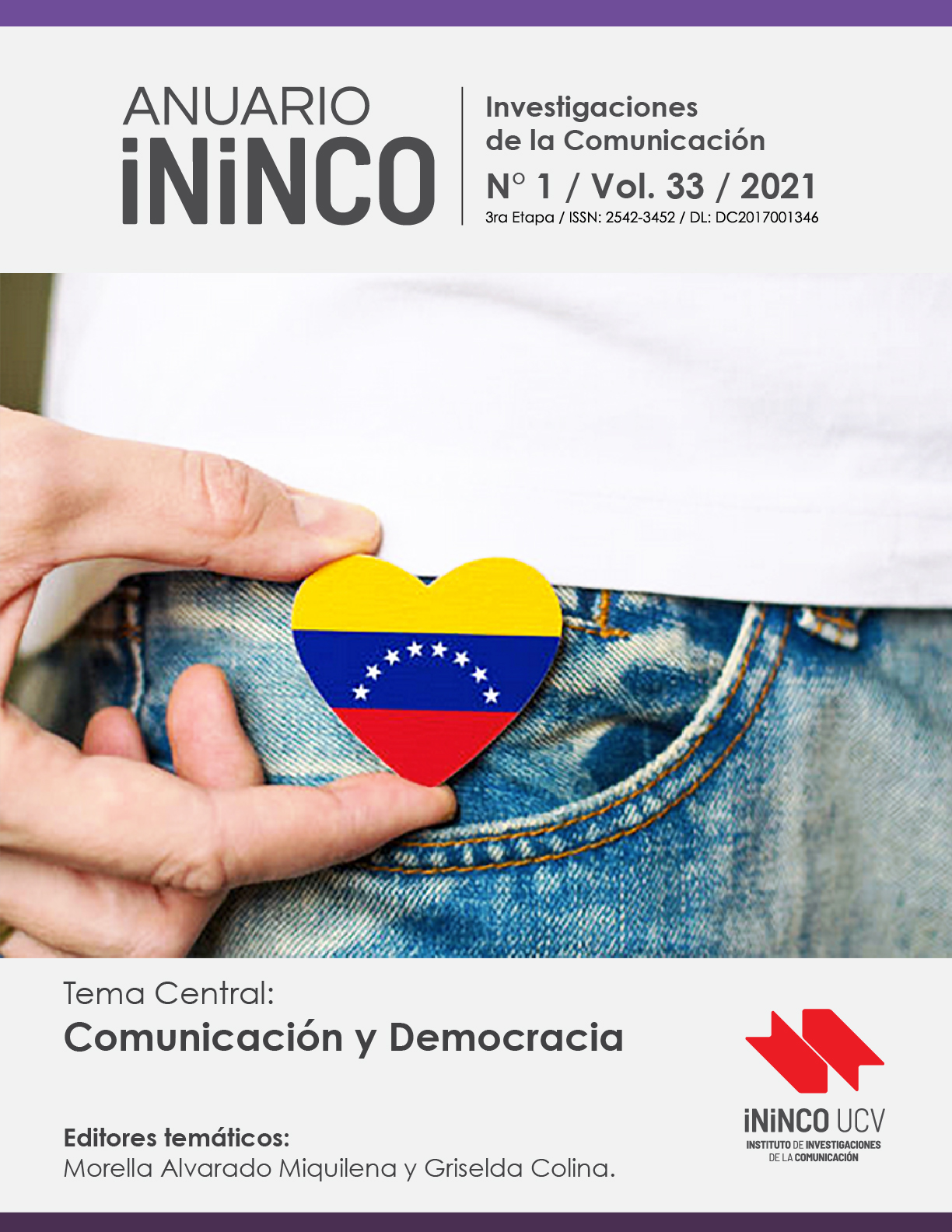To be informed in Venezuela: a qualitative study in Caracas and Todasana between urban and rural residents (April 2019)
Abstract
Censorship, pressures, persecutions and the sale of local media to government-related businessmen, despite the fact that they led to the emergence of new digital media, have also severely impaired citizens' ability to be informed. Given this complex and changing scenario we wanted to know the informative routines of the current Venezuelan: investigate their habits of news consumption, explore sources and means of consumption of informative content, perception about censorship / self-censorship, identify the main media and influencers; as well as investigate the ways in which they filter the information they consume in the face of the potential presence of fake news, rumors and misinformation. For this, we implemented a qualitative methodology between inhabitants of Greater Caracas (urban area) and inhabitants of the town of Todosana (rural area). It is observed that the levels of disinformation that the participants showed are high and with a tendency to deepen. The lower the socioeconomic level and the higher the age, the more frequent victims of false news, incomplete and / or biased information that hinder their own information process. As for the state media and its informative menu, the undeniable fracture with citizenship and the unstoppable loss of credibility is palpable. The SIBCI controls the information, but without the credibility of the citizens.
Downloads
Downloads
Published
Issue
Section
License
El Anuario ININCO/Investigaciones de la Comunicación no suscribe, necesariamente, las opiniones emitidas por los autores. Los textos son arbitrados y publicados de conformidad por sus autores.
Los autores que publican en el Anuario ININCO/Investigaciones de la Comunicación están de acuerdo con los siguientes términos:- Los autores conservan los derechos de autor y garantizan a la revista el derecho de ser la primera publicación del trabajo al igual que licenciado bajo una Creative Commons Attribution License que permite a otros compartir el trabajo con un reconocimiento de la autoría del trabajo y la publicación inicial en esta revista.
- Los autores pueden establecer por separado acuerdos adicionales para la distribución no exclusiva de la versión de la obra publicada en la revista (por ejemplo, situarlo en un repositorio institucional o publicarlo en un libro), con un reconocimiento de su publicación inicial en esta revista.
- Se permite y se anima a los autores a difundir sus trabajos electrónicamente (por ejemplo, en repositorios institucionales o en su propio sitio web) antes y durante el proceso de envío, ya que puede dar lugar a intercambios productivos, así como a una citación más temprana y mayor de los trabajos publicados (Véase The Effect of Open Access) (en inglés).
Prohibida su reproducción total o parcial sin la autorización de los autores. Ley de Derecho de Autor. Gaceta oficial N° 4638 Extraordinario. 1 Octubre de 1993. Las imágenes utilizadas son estrictamente para uso académico.

